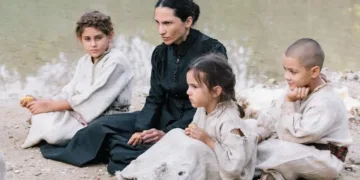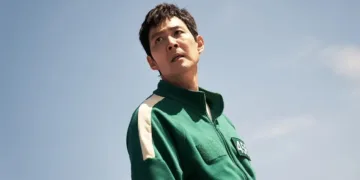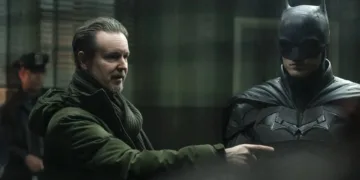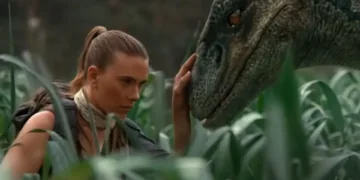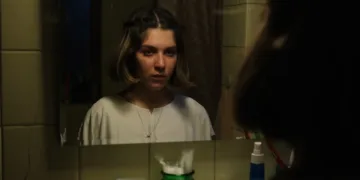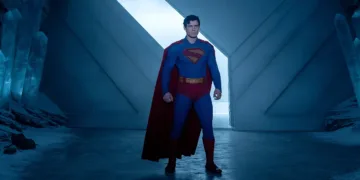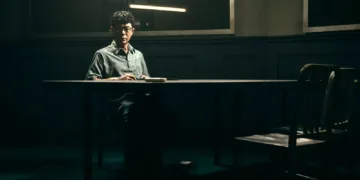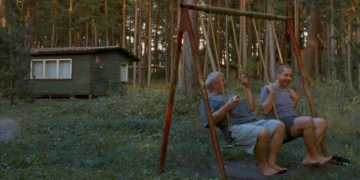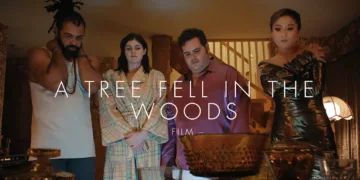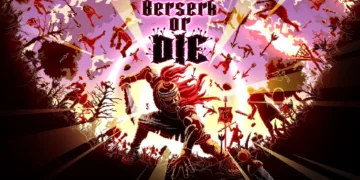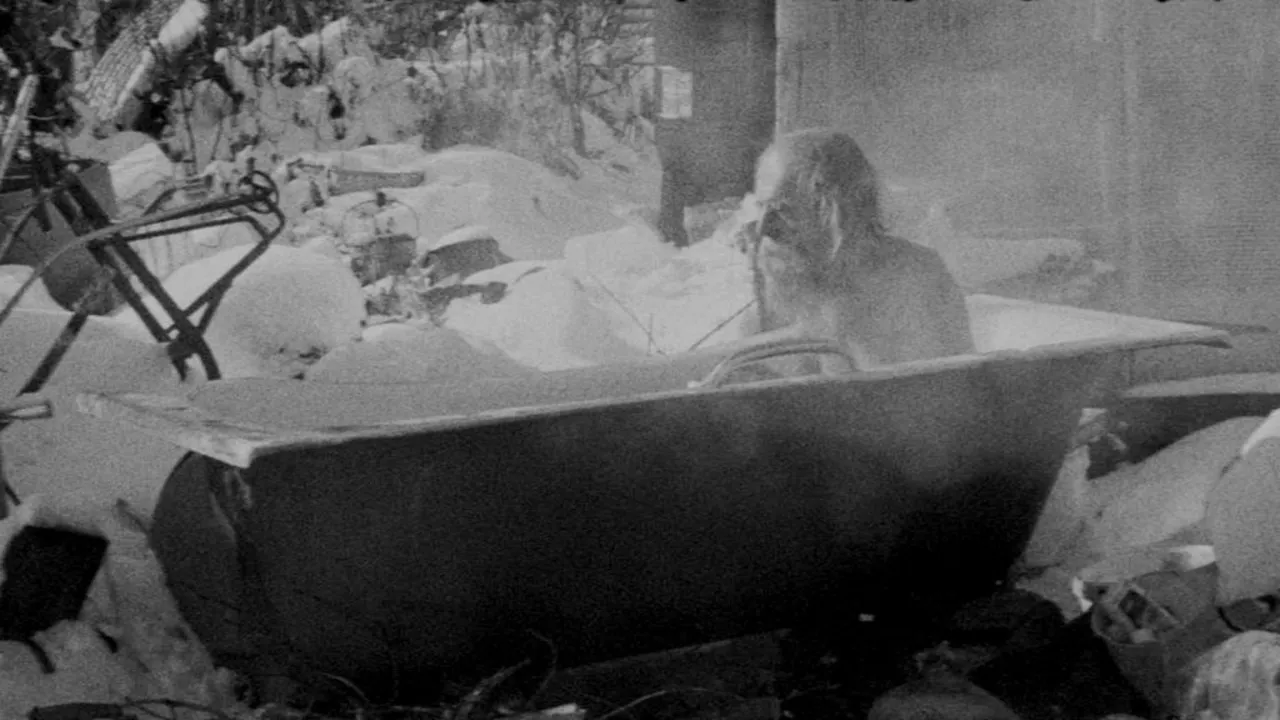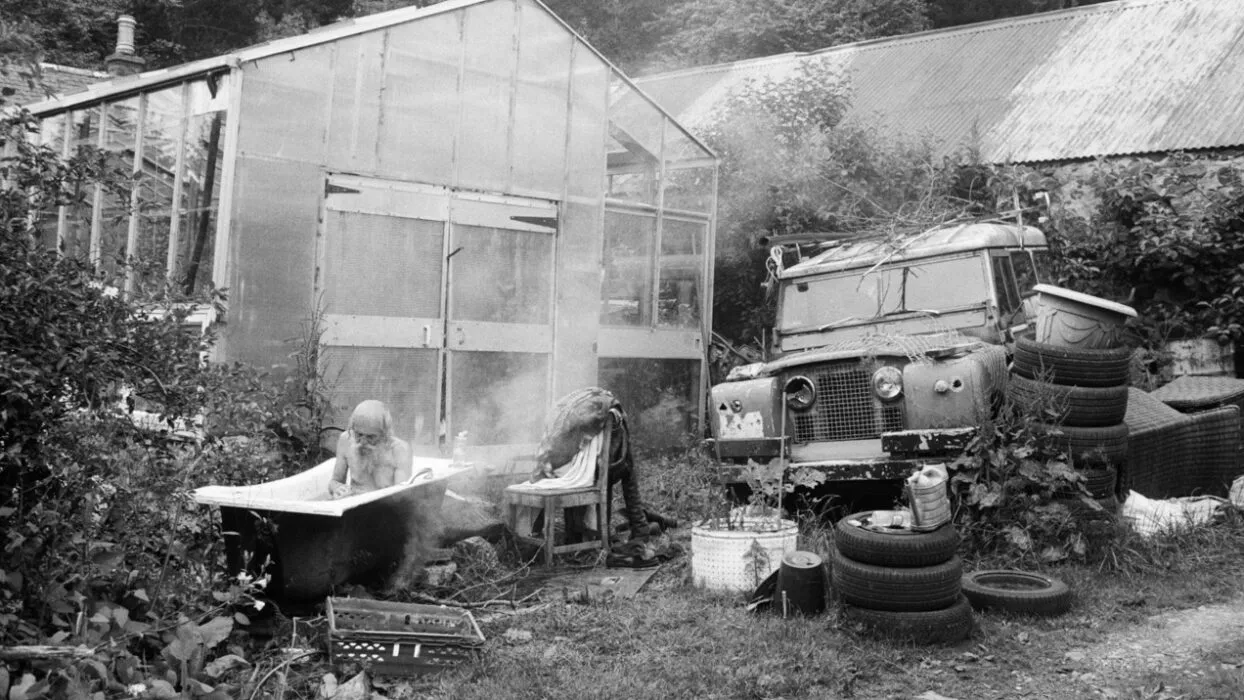Ben Rivers’s “Bogancloch” invites viewers into a quiet pocket of the Aberdeenshire forest, offering an unhurried observation of Jake Williams, a man living a life largely detached from contemporary currents.
More than a decade since their initial filmed encounters, Rivers returns to Williams, finding him amidst the familiar patterns of his isolated existence. This experimental documentary eschews conventional narrative, instead immersing the audience in the textures and rhythms of Williams’s days.
The film unfurls with a meditative pace, focusing on his quotidian tasks, his profound if understated connection to the natural world around him, and the quiet passage of seasons. It presents an existence where time itself seems to behave differently, stretching and contracting according to the demands of the land and the individual’s self-dictated labor.
The Hermit’s Gaze: Portrait of Jake Williams
Jake Williams, with his flowing beard and weathered knitted hat, embodies a figure almost out of time, a modern hermit whose dwelling is a testament to years of accumulated living and resourceful ingenuity. His is an off-the-grid existence, his forest bolthole a repository of objects that speak to countless projects and a life lived with intention, if not conventional order.
The camera captures him engaged in the elemental acts of survival and self-sufficiency: tending to a roadkill pheasant, meticulously sorting through a collection of cassette tapes that hint at a world beyond his immediate glen, or constructing a rudimentary model of the solar system using a common umbrella. These activities, filmed with a patient eye, reveal a man resourceful and perhaps quietly cheerful in his self-imposed solitude.
His interactions with the wider world are sparse but significant—a session explaining the cosmos to schoolchildren, a shared song with passing hikers—brief windows into a life that, while isolated, is not entirely disconnected. The Scottish highland setting, shifting through the seasons, is less a backdrop and more a character in itself, shaping Williams’s routines and the very texture of his days. Subtle shifts, like a newer vehicle, quietly acknowledge the years passed since “Two Years at Sea,” hinting at an unseen economic life that sustains this chosen remoteness.
The Hand-Processed Image: Rivers’s Visual Language
Ben Rivers’s cinematic approach in “Bogancloch” is as distinctive as his subject. The principal use of 16mm black and white film, which Rivers hand-processes, imparts a tangible, almost sculptural quality to the images. This technique results in a grainy, occasionally pockmarked, and richly textured visual field that feels both timeless and ethereal.
Moments of color, when they appear, punctuate the monochrome with surprising vibrancy, challenging assumptions built by the film’s dominant aesthetic. The film embraces the tenets of “slow cinema,” characterized by its extended takes and an observational stance that allows moments to unfold organically. There is no overt narrative guiding the viewer; instead, scenes of Williams’s daily life are presented, sometimes with lingering gazes, other times with a quicker succession of shots detailing a particular task.
The sound design is critical here, creating an immersive auditory world that fills the spaces left by the scarcity of dialogue or explanatory narration. Williams himself speaks more frequently than in earlier portrayals, his voice adding another layer to this portrait.
Rivers’s decision to forego direct exposition places a profound trust in the image and in the viewer’s capacity for interpretation, compelling an active engagement with the material presented. This deliberate style transforms the mundane into the quietly mesmerizing, with certain sequences—a bird bathing in silhouette, smoke curling from a stove—acquiring an almost otherworldly radiance.
Echoes in Isolation: Time, Existence, and Connection
“Bogancloch” resonates with profound questions about the nature of time and being. The film is deeply invested in portraying the passage of time, not just through the changing seasons or Williams’s visibly aging form, but in the very rhythm of his existence, which seems to offer a resistance to the hurried pace of the external world.
His engagement with tasks like building a model of the solar system or teaching children about planetary movements explicitly brings forth considerations of humanity’s small place within a vast cosmos. The haunting notes of a folk song, “The Flyting O’ Life And Death,” sung around a campfire, directly confront mortality and the elemental forces that shape existence. While Williams’s life is one of marked solitude, the film subtly explores the interplay between isolation and connection.
The appearance of Arabic music tapes and faded photographs from distant lands suggests a past lived beyond the confines of his Scottish retreat, weaving threads of a wider, perhaps more international, experience into his present. The film’s quiet ambition lies in its dedicated study of this singular life, inviting the audience to reflect on what constitutes a meaningful existence, the allure of retreat, and the enduring human need for purpose, however personally defined.
Bogancloch premiered at the 77th Locarno Film Festival in August 2024 and has since been featured in various international film festivals, including the Edinburgh International Film Festival and the Tokyo International Film Festival.
Full Credits
Director: Ben Rivers
Writers: Ben Rivers
Producers: Ben Rivers, Sarah Neely, John Archer
Co-Producers: Zsuzsanna Kiràly, Hanna Björk Valsdóttir
Executive Producer: Mark Thomas
Cast: Jake Williams, Nerea Bello, Shane Connolly, Alasdair Roberts, Rachel Smillie, Keng Keng Tang, Tomás Dimbleby Weber
Director of Photography (Cinematographer): Ben Rivers
Editor: Ben Rivers
Sound Department: Chu-Li Shewring (Sound Designer), Becky Thomson (Sound Recordist), Mark Vernon (Sound Recordist), Luke Fowler (Sound Recordist), Björn Viktorsson (Re-recording Mixer), Alasdair Roberts (Musical Director: Choir)
The Review
Bogancloch
"Bogancloch" is a deeply contemplative and visually striking piece of observational cinema. Ben Rivers offers an unvarnished, patient look into a life lived on its own terms, making Jake Williams's secluded world feel both intimately specific and strangely universal. Its unhurried pace and experimental aesthetic demand attention, rewarding the viewer with a profound meditation on time, existence, and the quiet beauty of the everyday.
PROS
- Stunning hand-processed 16mm cinematography.
- Intimate and respectful portrait of a unique individual.
- Rich thematic depth concerning time and human existence.
- Immersive sound design.
CONS
- Deliberately slow pace may not appeal to all viewers.
- Non-narrative structure can feel opaque at times.
- Requires viewer patience and engagement.













